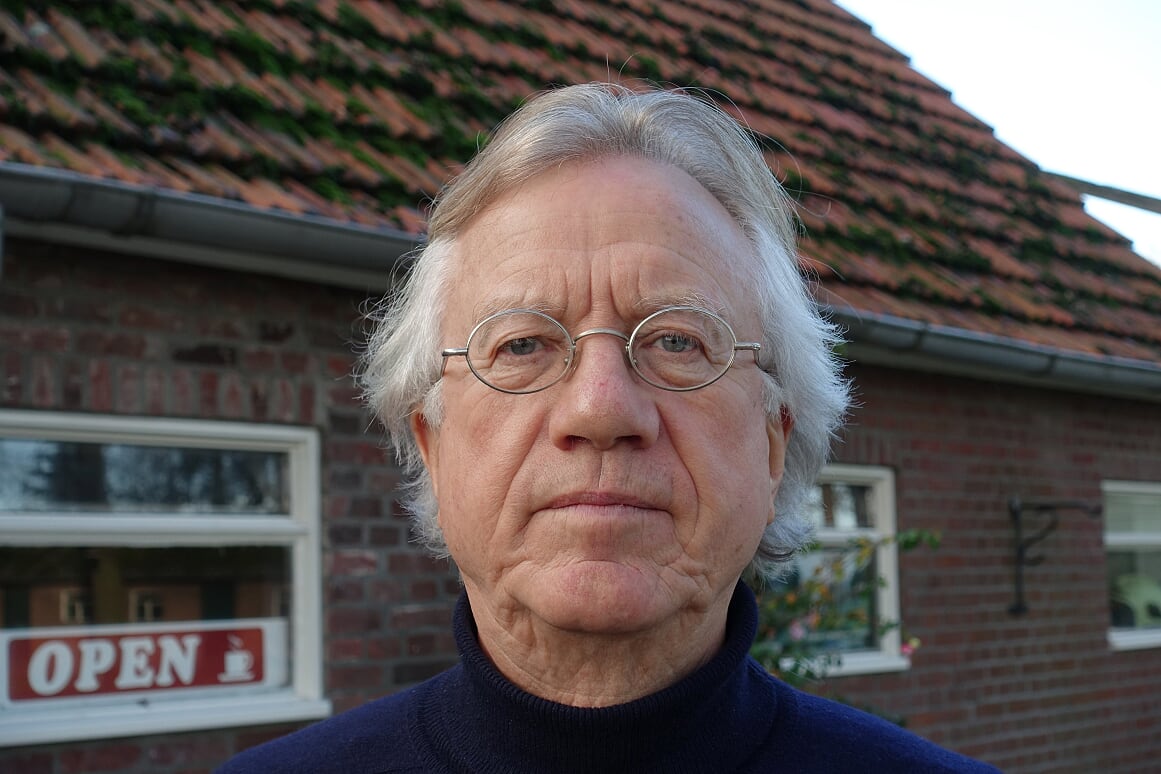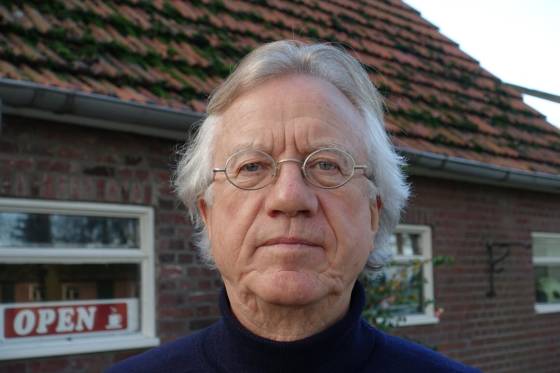Wynia’s Week: Rutte rules the VVD or is it D66?


Prime minister Mark Rutte is currently big on Europe and the climate. Yet his party used to hate wind turbines because it was subsidies that kept them turning, says commentator Syp Wynia.
The VVD was the party that wanted less Europe, not more, the party which, under Frits Bolkestein, became, for the very first time, the biggest in the land. But that was the 1990s and Bolkestein’s VVD has had its day.
In 13 years as party leader, Mark Rutte has made it clear: the European Union is welcome to increase its mandate and if we want to have any say in this world at all we need to be a part of this alliance. And yet, according to VVD tradition, foreign policy needed to be kept out of the hands of the big European countries.
Rutte now feels wind turbines are an integral part of the measures needed to achieve the climate goals of the Paris agreement.
Not too long ago, the VVD wasn’t that convinced the greenhouse effect was actually a thing. Today the VVD, the Dutch government and in its wake the EU, must be seen to be at the forefront of combating climate change. And Mark Rutte has taken it upon himself to convince the world that it should be done sooner rather than later.
D66 is key
What motivates Rutte’s political twists and turns is not always that obvious. It’s usually to do with gaining more power or holding on to the power he has. In order to gain political clout you need to convince voters and then make coalitions. So if Rutte is doing a u-turn he is either convincing voters or making coalitions. Or both.
As far as making coalitions are concerned, it is vital that Rutte keep D66 from jumping ship. That has given the party a key role and explains at least part of Rutte’s u-turns on climate and Europe. D66, with GroenLinks, is the most pro-Europe party in parliament and both are obsessed with climate change.
When in an alliance with the PvdA, Rutte championed income equality and now with D66 it’s the European union and climate. But maybe it’s not such a wrench for Rutte. As a young junior minister – in 2004 – he said the VVD was a ‘worn-out brand’ and, with like-minded junior minister Melanie Schultz van Haegen, he would philosophise about a merger with D66 and ‘parts of the PvdA’.
Rutte, the coalition builder
Coalition builder Mark Rutte is not limiting himself to the Netherlands. In the run up to the national elections of 2017 he qualified them as the ‘quarter finals’ in a series of elections: the French elections were the semis and the German elections the finals.
For the first time he placed himself in the European ranks of governments which took up the cudgel against ‘the wrong sort of populism’, as he called it. Rutte against Wilders, Macron against Le Pen and Merkel against Alternative für Deutschland.
Up until then Rutte, with Wilders hot on his heels, had been afraid to be classed as pro-Europe. But some three years ago – the Netherlands had chaired the EU for six months – the tide turned.
Rutte is now weaponising his new-found EU enthusiasm against the likes of Wilders and Baudet. He is pointing at the chaos that is Brexit. His party is talking of ‘people who shout from the side lines’ and ‘the fragile vase’ that is the Netherlands.
The strange thing is that both the climate u-turn and the Europe u-turn were achieved without any discussion in the party. The Rutte III government accord of October 2017 – the one with D66 – became the leading principle of the VVD’s climate policy without any internal party fuss. And Rutte’s swing towards Europe was included in the election manifesto without a murmur too.
Programme committee: political novices
It is worth looking at the composition of the committee which incorporated Rutte’s new-found views – climate included – in the VVD election manifesto.
The chairman is unknown young Ruben Brekelmans, a political assistant of junior justice minister Mark Harbers, himself a faithful Rutte fan. The rest of the committee are also political novices.
Compare this to 10 years ago, when the European parliamentary election manifesto was written by a committee of political heavyweights led by Frits Bolkestein. This time around nothing has been left undone to make sure the VVD is in complete synch with Rutte: at the forefront of Europe and climate.
The end of the Bolkestein era
Rutte’s twists and turns have put an end to the Bolkestein era for good and all. Bolkestein left in 1998 but he was the model for an electorally successful euro-sceptic VVD which wasn’t afraid to row against what was perceived as the progressive current of thought.
Not that Rutte and Bolkestein were ever friends. In 2006 Bolkestein, like Hans Wiegel before him, opted for Rita Verdonk as party leader and not Mark Rutte. Ever since, Bolkestein and Wiegel have criticised Rutte whenever he made too generous concessions to his coalition partners.
As early as 2013, Bolkestein said Rutte would do better to give up as prime minister and continue his career as EU commissioner in Brussels. For the last year he has been saying that Rutte should step into the shoes of Donald Tusk as ‘president of Europe’. And in December he publicly stated he had had a row with Rutte over the signing of the Marrakesh accord because he, Bolkestein, thought it was a very bad idea.
One-man party
It is not too fanciful to say that after 13 years as leader Rutte has turned the VVD into a one- man party. The VVD is Rutte. His recent u-turns emphasise what a political chameleon he is but they are presumably quite close to his – rather schematic – views. The fact is that the difference between D66 and Rutte’s VVD have become almost negligible.
But remember that the VVD became big under earlier leaders (Wiegel, Bolkestein) with a solid ‘right wing’ course. And when it elected leaders with a D66-like profile (Voorhoeve, Dijkstal) it fared rather less well. Rutte may have distanced himself from Wiegel and Bolkestein but he is taking a risk.
Recently VVD parliamentary party chairman Klaas Dijkhoff told the Telegraaf he would oppose the climate accord which he thought was far too radical and expensive. If push came to shove, he would support the put-upon citizens and not the cabinet. And, he said, D66 was a party of ‘nags’.
Dijkhoff did not tread on any other toes. His move was not meant to worry coalition parties but to appease a rebellious electorate. Rutte may have his own VVD soldier lined up at the Binnenhof but his voters are in disarray.
This column was first published in Wynia’s Week.
Syp Wynia is a journalist and columnist who writes primarily on politics and economics, as well as Europe, migration and the government’s finances.
Thank you for donating to DutchNews.nl.
We could not provide the Dutch News service, and keep it free of charge, without the generous support of our readers. Your donations allow us to report on issues you tell us matter, and provide you with a summary of the most important Dutch news each day.
Make a donation